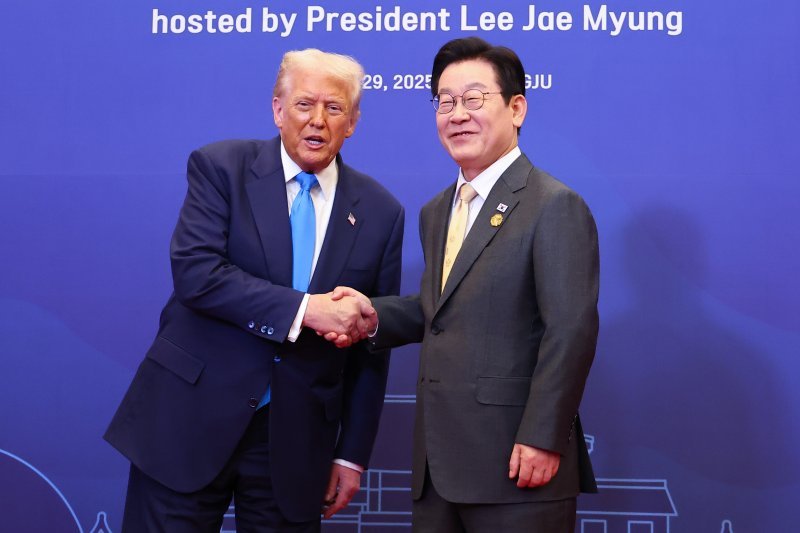[fn Editorial] KORUS FTA Agreement Protects National Interests and Eases Financial Uncertainty
- Input
- 2025-10-29 21:58:50
- Updated
- 2025-10-29 21:58:50

The core of the KORUS FTA was the method of investing $350 billion in the United States. The two countries agreed to structure this as $200 billion in direct investment and $150 billion in shipbuilding cooperation. Although the $200 billion in direct investment is nearly half of Korea’s foreign exchange reserves, the burden was eased by spreading the investment over ten years. Profits will be split evenly, fifty-fifty.
We believe the outcome of these negotiations aligns with the government’s long-standing principle of prioritizing national interests. By agreeing to a ten-year installment plan, the government has, as explained, minimized potential shocks to the foreign exchange market. The profit-sharing arrangement is also considered not particularly disadvantageous. It appears that the principal will be secured.
The most critical issues were tariffs on automobiles and semiconductors. It is fortunate that automobile tariffs will be set at 15%, the same as Japan and the European Union (EU), and that semiconductor terms will not be less favorable than those for Taiwan. The industries concerned, which had been anxious about the outcome, can now breathe a sigh of relief. Resolving this uncertainty will also help stabilize financial markets and the industrial sector.
A notable achievement is that strengthening shipbuilding cooperation was included as part of the investment. This could facilitate the entry of Korea’s shipbuilding industry into the U.S. market and help secure shipbuilding orders, resulting in a win-win effect. The decision to establish the Korea-U.S. Shipbuilding Cooperation Consultative Body is also a meaningful step forward.
This relatively successful outcome is the result of persistent efforts to explain and persuade the U.S. side of Korea’s position, rather than simply yielding to American demands. Of course, it is impossible to be 100% satisfied. Compared to Japan, which reached an agreement earlier, there are areas where we fall short and others where we did better. There will be further opportunities to negotiate with the U.S. on unresolved issues.
This is the second South Korea–United States summit under the Lee Jae-myung administration. In addition to the KORUS FTA, the two countries achieved even more during this summit than during President Lee’s previous visit to the U.S. Most notably, they agreed to further strengthen security cooperation, including nuclear deterrence against North Korea’s nuclear threat, which is particularly significant given the recent alignment of the China-Russia-North Korea triangle. President Lee also pledged to increase defense spending, partially meeting U.S. requests.
However, it is premature to say that all clouds have cleared in Korea-U.S. relations. There may still be friction over more detailed issues, and President Trump could make additional demands regarding defense cost-sharing.
Nevertheless, the persistence shown through 23 ministerial-level meetings between the two countries resulted in a relatively favorable outcome. This KORUS FTA will be instrumental in managing and resolving potential future conflicts between the two nations. Negotiators have also gained valuable experience.
Major diplomatic events such as the Korea-Japan Summit and South Korea-China summit remain during the APEC period. It is essential to put national interests first and act with pragmatism to achieve the best possible outcomes for peace on the Korean Peninsula and economic development. Through this APEC, Korea must elevate its diplomatic capabilities to the next level.